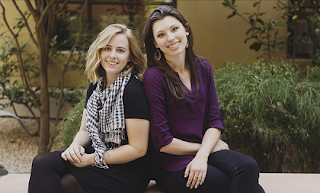Two Arizona artists who refused to create invitations to same-sex weddings due to their Christian beliefs were within their legal rights, the US state's top court ruled last 16 September.
The Arizona State Supreme Court's decision invalidates previous judgments against the two women for violating a "human relations ordinance" introduced by the southwestern city of Phoenix to promote and push down everyone's throat the LGBTQ rights.
According to their lawyers, the two artists could have faced up to six months in prison and a US$ 2,500 fine each time they refused to make invitations to gay weddings.
Joanna Duka and Breanna Koski, owners of a small calligraphy company specializing in handwritten invitations, opened legal proceedings against the city in 2016 over the ordinance.
They had not been hired by any LGBTQ couple, but their client list just got a major boosts from this court decision.
The pair claim their Christian faith prevents them from promoting same-sex marriage, including by making invitation cards.
Phoenix's ordinance would compel them to violate their freedom of expression and religion, they argued.
"Duka and Koski's beliefs about same-sex marriage may seem old-fashioned, or even offensive to some," the court found in its ruling.
"But the guarantees of free speech and freedom of religion are not only for those who are deemed sufficiently enlightened, advanced, or progressive. They are for everyone."
While the judges did not generalize their ruling to cover all commercial activity, this sets the stage for further legal battles and encourage those who believed in Freedom of Religion to be free from exercising their right to practice their faith.
The plaintiffs were represented by Alliance Defending Freedom (ADF), a conservative organization dedicated to challenging similar laws across the US.
It represented a Colorado pastry chef who refused to bake a cake for a gay wedding in 2012.
The widely followed and divisive case reached the Supreme Court six years later, which ruled partially in favor of the chef.
The Arizona State Supreme Court's decision invalidates previous judgments against the two women for violating a "human relations ordinance" introduced by the southwestern city of Phoenix to promote and push down everyone's throat the LGBTQ rights.
According to their lawyers, the two artists could have faced up to six months in prison and a US$ 2,500 fine each time they refused to make invitations to gay weddings.
Joanna Duka and Breanna Koski, owners of a small calligraphy company specializing in handwritten invitations, opened legal proceedings against the city in 2016 over the ordinance.
They had not been hired by any LGBTQ couple, but their client list just got a major boosts from this court decision.
The pair claim their Christian faith prevents them from promoting same-sex marriage, including by making invitation cards.
Phoenix's ordinance would compel them to violate their freedom of expression and religion, they argued.
"Duka and Koski's beliefs about same-sex marriage may seem old-fashioned, or even offensive to some," the court found in its ruling.
"But the guarantees of free speech and freedom of religion are not only for those who are deemed sufficiently enlightened, advanced, or progressive. They are for everyone."
While the judges did not generalize their ruling to cover all commercial activity, this sets the stage for further legal battles and encourage those who believed in Freedom of Religion to be free from exercising their right to practice their faith.
The plaintiffs were represented by Alliance Defending Freedom (ADF), a conservative organization dedicated to challenging similar laws across the US.
It represented a Colorado pastry chef who refused to bake a cake for a gay wedding in 2012.
The widely followed and divisive case reached the Supreme Court six years later, which ruled partially in favor of the chef.

